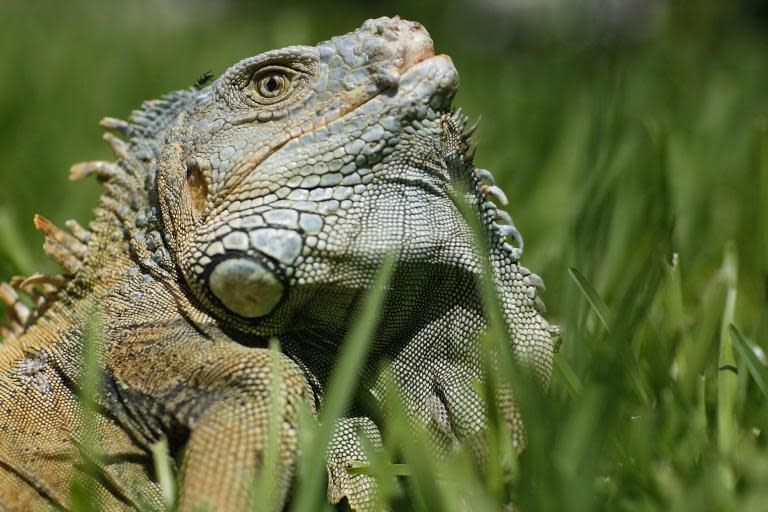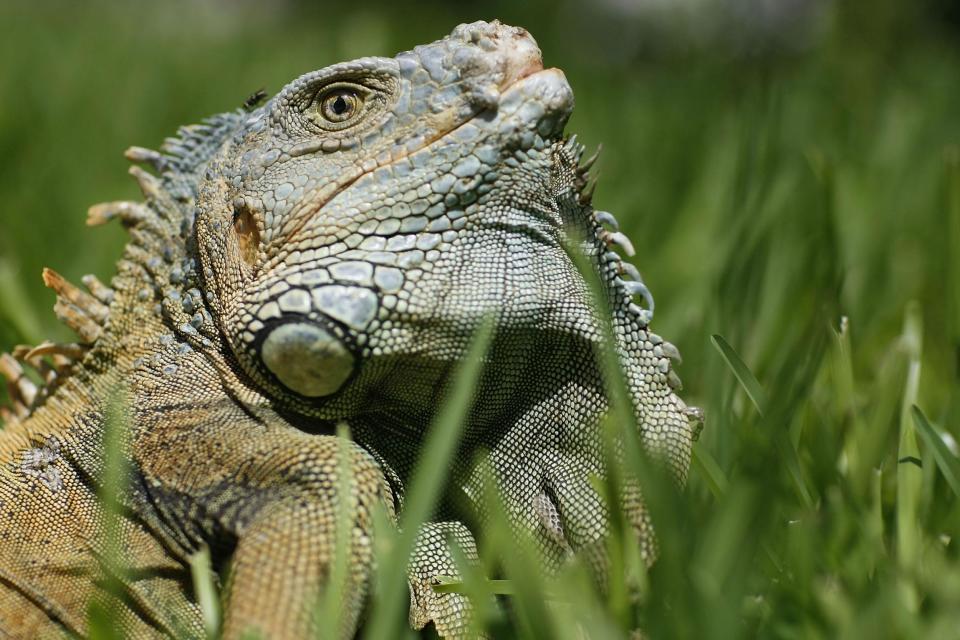Florida residents urged to kill iguanas 'whenever possible' amid overpopulation fears
The advice to residents of Florida about the rapidly multiplying green iguanas could not have been clearer – kill them, “whenever possible”.
Naturalists say the lizards, which are an invasive species to the state, are reproducing more quickly than usual because of an extended warm spell. They can cause damage to infrastructure by burrowing, and foul swimming pools and lakes. Given the creatures can lay up to 75 eggs a year and reach up to 5 feet in length, officials have urged residents to help.
“Green iguanas are not native to Florida and are considered to be an invasive species due to the damage they can cause to seawalls, sidewalks, and landscape plants. This species is not protected in Florida expect by anti-cruelty law,” said a notice posted by the state’s fish and wildlife conservation commission (FWC).
It added: “Homeowners do not need a permit to kill iguanas on their own property, and the FWC encourages homeowners to kill green iguanas on their own property whenever possible.”
The creatures, originally from South America, have long been a menace in Florida, and there have been various attempts to try and deal with them.
Authorities say iguanas brought to Florida as pets or hitchhiking on ships have flourished in the conditions found there.
Another invasive species, the Burmese python, is wreaking havoc in the Everglades because the big snakes eat almost anything and have no natural predators, the Associated Press reported.
Joseph Wasilewski, a scientist from the University of Florida who studies wildlife in Florida and the Caribbean, told ABC News the iguanas were a “serious problem from many standpoints”.
“They will destroy agriculture, undermine roads, cause electrical transformers to fail, they can transmit salmonella,” he said.
Yet, he said he was not delighted the authorities had decided to kill the lizards.
“It saddens me that all of these magnificent animals, along with multitudes of other invasive reptile species have to be put down,” he said. “There is no alternative for the problems.”


